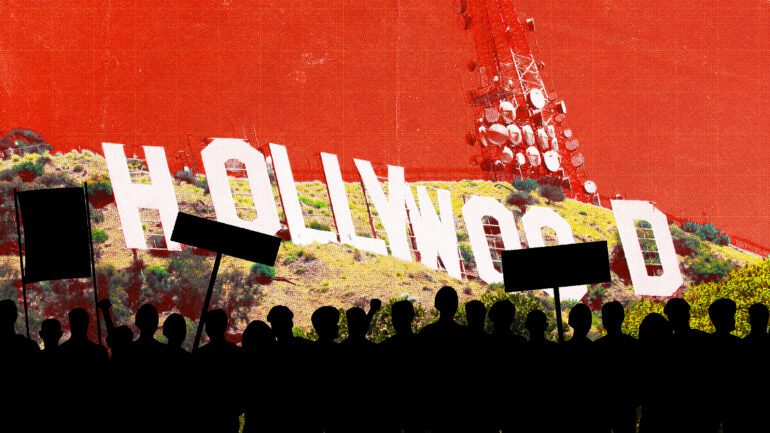TL;DR:
- The Hollywood actors’ union strike highlights the growing impact of AI on labor.
- AI provisions in the contract signal impending changes in various job sectors due to AI technology’s rapid rise.
- The entertainment industry faces AI challenges with digital replicas of actors; unions may incorporate AI concerns in negotiations.
- Nonunionized white-collar workers will also experience significant AI-induced changes.
- Jobs such as translators, copy editors, and software engineers are being disrupted by generative AI.
- Writing-related jobs are threatened, with a 14% decrease in freelance writing job listings.
- AI may either replace or augment jobs, altering the way people work.
Main AI News:
The recent Hollywood actors’ union strike, which lasted 118 days, brought to light a critical issue that is fast becoming a concern in various industries: the impact of artificial intelligence (AI) on labor. The groundbreaking AI provisions in the union contract are not just limited to the entertainment industry but are indicative of the broader changes that are expected to affect jobs across the board due to the rapid rise of AI technologies. This article explores the significance of the Hollywood strike and why AI labor issues matter to everyone, whether they are part of a union or not.
The Urgency in Entertainment
The entertainment industry has been at the forefront of AI-related challenges, particularly due to the creation of digital replicas of actors. This technology has enabled the resurrection of beloved characters like Carrie Fisher’s return in “Star Wars: The Rise of Skywalker” and Paul Walker’s appearance in “Furious 7” after their passing. However, with the fast-paced development of AI, it is clear that the issue is not limited to Hollywood alone.
AI in Union Contract Negotiations
The Hollywood actors’ strike highlighted the importance of addressing AI-related concerns in union contract negotiations. As AI continues to advance, it is likely to be a recurring topic in these negotiations. Unions may use the threat posed by AI to organize new workforces and advocate for provisions that protect workers from the potential negative impacts of AI.
The Impact on Nonunionized Workers
The effects of AI on labor are not confined to unionized workers; significant changes are on the horizon for nonunionized employees as well, especially among white-collar professionals. Jobs that were once considered safe from automation, such as translators, copy editors, and software engineers, are facing disruptions due to the rapid adoption of generative AI. Even economists are witnessing changes in their daily work tasks, indicating that the impact of AI will touch almost every white-collar worker in some way.
The Threat to Writing-Related Jobs
The rise of AI-powered writing tools, like ChatGPT, has raised concerns about the future of jobs that involve writing. Recent research shows a 14% decrease in freelance job listings associated with writing, which includes fields like electronic engineering, accounting research, and web development, after the introduction of AI writing tools. This trend underscores the broader challenges that white-collar professionals may face in the near future.
AI: Replacing or Augmenting Jobs?
One of the key uncertainties surrounding AI’s impact on labor is whether it will entirely replace jobs or simply augment them by changing the way people work. While some jobs may be automated, others may see a transformation in their roles, with AI handling routine tasks and allowing workers to focus on more complex and creative aspects of their jobs.
Conclusion:
The Hollywood actors’ strike serves as a wake-up call, signaling that AI labor battles are not a distant future but a pressing issue affecting various industries today. As AI continues to advance, workers, unions, policymakers, and employers must be prepared to adapt to the changing landscape of work. The lessons learned from Hollywood should be a reminder that AI is reshaping the job market for everyone, making it crucial for individuals and organizations to stay informed and proactive in addressing these challenges. Hollywood actors might have been the first to confront AI labor issues, but they certainly won’t be the last.

